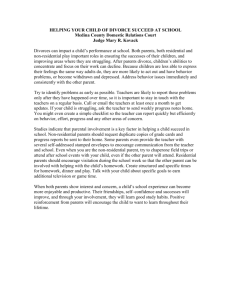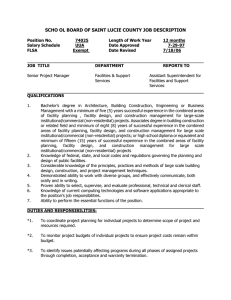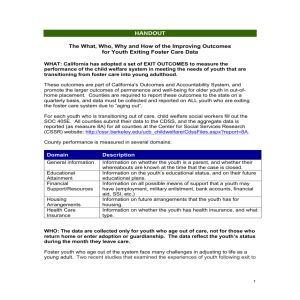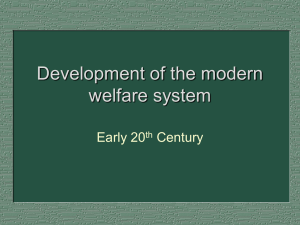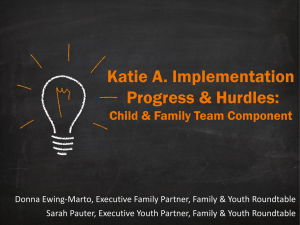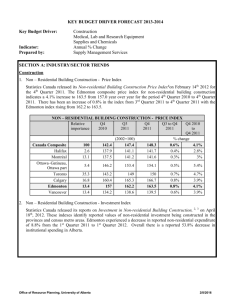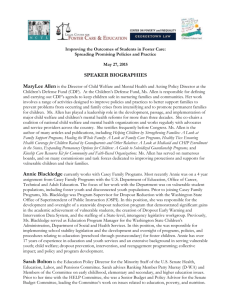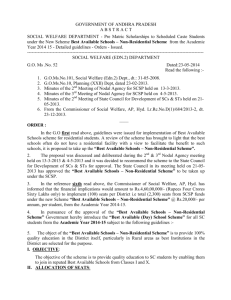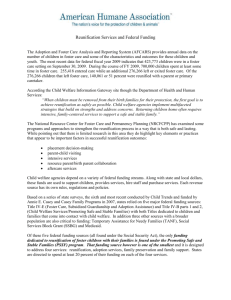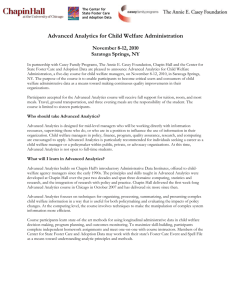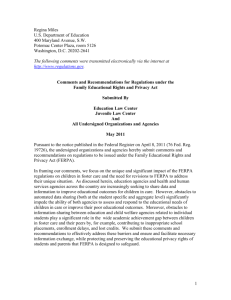Non residential care in Finland
advertisement
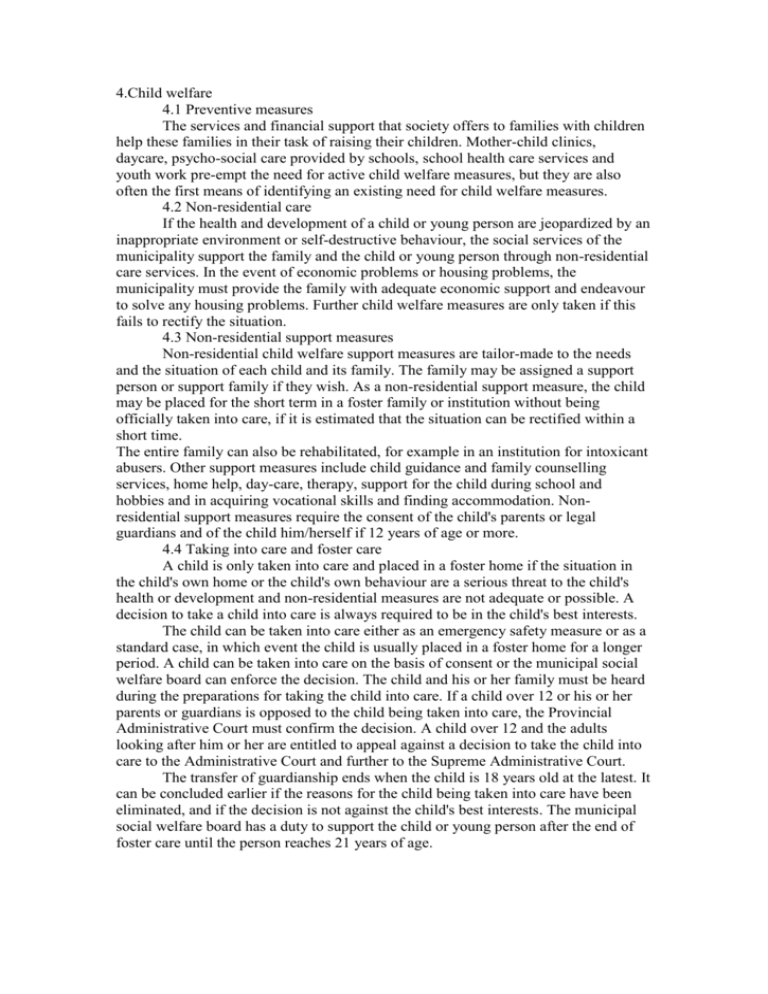
4.Child welfare 4.1 Preventive measures The services and financial support that society offers to families with children help these families in their task of raising their children. Mother-child clinics, daycare, psycho-social care provided by schools, school health care services and youth work pre-empt the need for active child welfare measures, but they are also often the first means of identifying an existing need for child welfare measures. 4.2 Non-residential care If the health and development of a child or young person are jeopardized by an inappropriate environment or self-destructive behaviour, the social services of the municipality support the family and the child or young person through non-residential care services. In the event of economic problems or housing problems, the municipality must provide the family with adequate economic support and endeavour to solve any housing problems. Further child welfare measures are only taken if this fails to rectify the situation. 4.3 Non-residential support measures Non-residential child welfare support measures are tailor-made to the needs and the situation of each child and its family. The family may be assigned a support person or support family if they wish. As a non-residential support measure, the child may be placed for the short term in a foster family or institution without being officially taken into care, if it is estimated that the situation can be rectified within a short time. The entire family can also be rehabilitated, for example in an institution for intoxicant abusers. Other support measures include child guidance and family counselling services, home help, day-care, therapy, support for the child during school and hobbies and in acquiring vocational skills and finding accommodation. Nonresidential support measures require the consent of the child's parents or legal guardians and of the child him/herself if 12 years of age or more. 4.4 Taking into care and foster care A child is only taken into care and placed in a foster home if the situation in the child's own home or the child's own behaviour are a serious threat to the child's health or development and non-residential measures are not adequate or possible. A decision to take a child into care is always required to be in the child's best interests. The child can be taken into care either as an emergency safety measure or as a standard case, in which event the child is usually placed in a foster home for a longer period. A child can be taken into care on the basis of consent or the municipal social welfare board can enforce the decision. The child and his or her family must be heard during the preparations for taking the child into care. If a child over 12 or his or her parents or guardians is opposed to the child being taken into care, the Provincial Administrative Court must confirm the decision. A child over 12 and the adults looking after him or her are entitled to appeal against a decision to take the child into care to the Administrative Court and further to the Supreme Administrative Court. The transfer of guardianship ends when the child is 18 years old at the latest. It can be concluded earlier if the reasons for the child being taken into care have been eliminated, and if the decision is not against the child's best interests. The municipal social welfare board has a duty to support the child or young person after the end of foster care until the person reaches 21 years of age.
